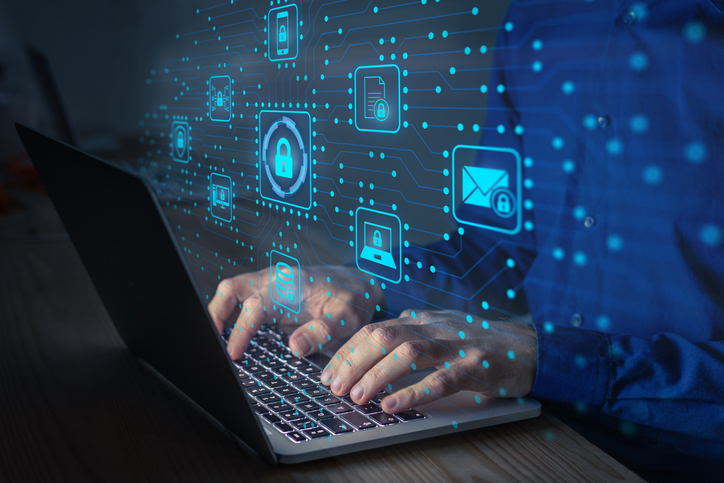Basic Tips for Computer Maintenance
Share

Computer maintenance is generally left out by using many human beings, and they grow to be buying the subsequent repair work. This article contains useful recommendations to help you preserve your computer in a suitable situation.
TAGGED UNDER: Computer Repair
It is surprising to see how many errors we make while maintaining our computer systems, considering we cannot do much work without them. Computer upkeep is something we can easily deal with ourselves. However, we do not take half the care we should, so we spend a lot of money on calling experts to test our PCs yearly. This is the cash we ought to have stored thoroughly.

This article enlists ten critical preservation guidelines that you need to observe. These increase your disk’s difficulty and make the computer greener for you. (The tips given below are for Windows-running systems.)
Tip # 1 – When to Restart and When to Reset
Most people suppose that restarting and resetting are the same factors; however, they do not! Restarting is when the device is made to shut down (normally) and then made to begin again after the commonplace rebooting procedure that it undergoes. Restarting may be finished through numerous inner functions of the operating gadget, including the shutdown option in the menu. However, resetting is special. Giving a button gift on the CPU immediately finishes this. When you reset a device, you shut it down forcefully and then start it again. When resetting is accomplished, the system can’t close down normally, but restarting lets that appear.
READ MORE :
Resetting needs to be accomplished most effectively while nothing else seems to work. For instance, if the display has frozen, or if the laptop ‘hangs,’ and even Ctrl-Alt-Del does not paint anymore, then resetting may be accomplished. You should see the handiest cross for restarting for simple necessities like reconfiguring the device after installing new software.
Tip # 2 – Shutting Down the Computer
The PC should never be shut down using any other technique except via the close-down option provided. It should also never be shut down by powering it off immediately from the AC mains, as this will cause irreparable damage to the hard disk.
Tip # 3- Clean Out Your Computer Occasionally
It would not take much time to run a disk scan and a defragmenter on your computer. When you defragment your disk, you free up all wasted space in your machine, increasing its performance. Scanning suggests all the horrific and corrupt files placed in your system.
Tip # 4- Keep the Startup Simple
If your laptop takes a long time to start up, it probably has several startup packages. Let the system start completely, then from the startup programs menu, delete those you do not need to load at startup. These programs will make the simplest gradual down your PC appreciably.
Tip # 5- Install an Antivirus
Anyone knowing an iota of computer systems will inform you how essential an antivirus is to use the Internet. Remember to run the antivirus scan often. You can even set it as much as conduct a scan robotically.
Tip # 6 – Install Firewalls
You can say that firewalls are better than antivirus packages at protection. While antivirus packages are the remedy, firewalls may be considered because of the prevention. When you set up a firewall, you restrict all unauthorized access to your computer. It would help if you did this as quickly as you got your Internet connection and kept the firewall definitions updated.
Tip # 7 – Install Antispyware Programs
Spyware is a term used to describe numerous unauthorized applications that get set up on your laptop. At the same time, you browse the Internet, after which they connect your machine to the host server. These applications can relay non-public data from your machine to the host server. Spyware is a chief detail of identification robbery in modern-day times. Fortunately, there are numerous excellent antispyware programs that you could install to shield your PC from such threats.
Tip # 8- Keep Adequate Disk Space
Never fill your tough disk to complete your ability. This will force your laptop to run sluggishly and might even harm the disk. Keep a minimum of 100 MB of the loose area. However, the hard disks to be had today have humongous capacities, so this trouble will, in all likelihood, not necessarily arise.
Tip # 9- Use Peripheral Devices Carefully
For all peripheral gadgets, you should exercise care while making direct connections to your PC. Especially when you are disposing of them, don’t just yank them out. Please turn off the device via the corresponding software program first, and put them off simplest while saying it is secure to get rid of the device.
Tip # 10 – Clean Out the Temp Files
Temp documents are created while you run any application on your PC. These are not user-readable documents but statistics for the computer so it can use the applications without problems next time. A comparable analogy is located in cached files while using the Internet. These files can collect in large quantities and might clog the machine, forcing it to run very slowly. You often visit the temp or cache folder to smooth out these files.








